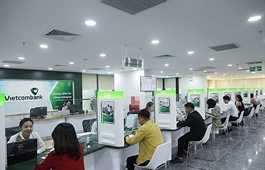Managing tax deductibility of intercompany expenses
Managing tax deductibility of intercompany expenses
The deductibility of intercompany expenses involving “non-tangible” goods transactions continues to be an area of focus by the tax authorities, particularly those expenses for payments relating to intellectual property or provision of services. Joseph Vu, partner of Transfer Pricing, and Nguyen Thanh Hoa, partner of Legal at KPMG Ltd., take a closer look and give insights on mitigating risks regarding deductibility of these expenses from a tax and transfer pricing perspective.

Joseph Vu, partner of Transfer Pricing, and Nguyen Thanh Hoa, partner of Legal at KPMG Ltd
|
The terms “royalty” and “license fee” are not specifically defined in any Vietnamese tax and commercial laws. They are understood as payment for the right to use intangibles which include: (i) technology transfer (meaning technical information, know-how, and patents) and (ii) license of industrial properties (meaning trademark, trade secrets, and industrial design).
Deductibility of royalty/license fee requires consideration of both corporate income tax and transfer pricing regulations. Further, proper registration of the royalty/license agreement with the appropriate authorities, if applicable, is often required to claim tax deduction of the fees.
Intra-group services (IGS) are those provided by one or more entities to other companies within the same group. IGS could be in the form of administrative, finance, human resources, IT, marketing, procurement, research and development (R&D), technical services, and others. Fees charged for IGS may often be referred to as management fees, regional or head office charges, shared service charges, or another. The need for IGS normally arises from commercial reasons that include technical capability, consistent quality, and cost reduction and efficiency.
Substance over form
Historically, tax examiners seldom challenged the tax deductibility of royalty/license fee and IGS charges, provided that taxpayers maintain standard documents to support the charges, notably intercompany agreements, general transfer pricing documentation, invoices, and general descriptions of these transactions. However, with the introduction of the “substance over form” principle under the Law on Tax Administration and Decree No.20/2017/ND-CP dated February 24, 2017 guiding tax management on transfer pricing in enterprises, the requirements for obtaining tax deduction of these intercompany expenses is no longer that simple or straightforward.
For royalty/license fee, tax authorities are requiring evidence that the intellectual property (IP) has economic value and benefits for the Vietnamese taxpayer; the licensor has the legal and economic ownership of the IP; the licensor continues to carry out activities to develop, enhance, and protect the IP to justify the ongoing charges; and pricing of the royalty/license fee is at arm’s length.
For IGS charges, tax authorities are requiring taxpayers to prove services have actually been rendered and provide economic benefits to the Vietnamese taxpayer. Certain service charges are disallowed tax deduction, such as services that are duplicated, shareholder activities and others.
Authorities also require taxpayers to prove that service charges were calculated based on the arm’s length principle (meaning service fee is commensurate with the benefits received, and cost allocation method is reasonable).
Authority challenges
Based on our observations, typical areas of scrutiny faced by local taxpayers include:
- Contracts/agreements were not documented properly from commercial, transfer pricing, and tax perspectives. This may result in differences between the contractual agreements and actual substance of the underlying transactions;
- Agreements relating to the transfer or use of technology were not properly registered with the appropriate authorities;
- Lack of supporting documents to prove the economic value of the underlying transactions and the economic benefits received by the Vietnamese taxpayer;
- Lack of supporting documents to prove the arm’s length nature of the intercompany expenses.
As the burden of proof lies with the local taxpayer, failure to provide sufficient evidence to address these issues will likely result in the tax authorities denying the deduction of such intercompany expenses. Further, inconsistent interpretation of the regulations by tax examiners across different provinces also poses significant challenges for local taxpayers to defend the tax deduction of these charges.
Recommendations
In the event of a tax or transfer pricing investigation, taxpayers generally have a short timeframe (typically one or two weeks) to explain and provide supporting documents in response to potential challenges and accusations from the tax examiners as mentioned above. Further, Vietnamese taxpayers may face difficulty in gathering and preparing evidentiary documents to substantiate the economic value and benefits of the royalty/license fee or IGS charges – as well as the appropriate pricing of these charges – since this requires collaboration with the relevant overseas related parties for information sharing. In addition, producing evidentiary documents that can reasonably satisfy the expectations of the tax examiners could be subjective.
We highly recommend addressing and rectifying the issues highlighted above well in advance. Further, experience is critical in dealing with these intercompany charges, especially understanding what the tax authorities expect. Thus, we also recommend seeking support from professional advisors to assist in managing the potential risks of these intercompany expenses. Such support includes reviewing and assessing the potential risks of the company’s royalty or service charge arrangement; assistance in gathering and preparing evidentiary documents; and support in tax or transfer pricing investigation. With proper preparation, in our view the deductibility of your intercompany expenses can be supportable and defensible.



























